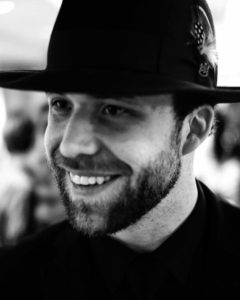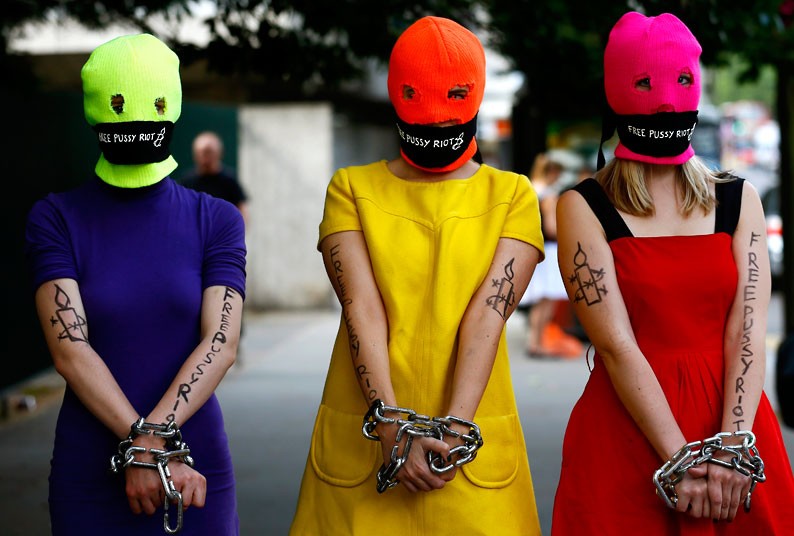Protest group crashes Sochi games, puts spotlight on Russian Rights
Keith Farrell
The protest rock group Pussy Riot recorded their first song since two of the members were freed from Russian prison. Members of the group filmed a video on them trying to perform their song in Sochi while being whipped by Cossack guards. The song, entitled “Putin will teach you how to love your motherland,” mocks President Vladimir Putin for hosting the Olympics as an international public relations ploy while ignoring issues regarding human rights.
Follow TLR on Google+
Two Pussy Riot members, Maria Alyokhina and Nadezhda Tolokonnikova, were recently released after serving two years in jail for protesting Putin. The activists claim their amnesty was granted to squash criticisms of Russia leading up to the winter games.
Pussy Riot gained international fame through protest performances critical of Putin as well as the Russian Orthodox Church which they would upload to the internet. Their lyrics center on LBGT rights, feminist issues, the influence of the Orthodox Church in Russian politics, and Putin, who they label a dictator. While public opinion of the group inside Russia was never positive, their arrests, trial and imprisonment became a magnet for Western criticism.
Pussy Riot Sings “Putin will teach you how to love your motherland”
Thursday Nadezhda Tolokonnikova said that the Sochi Olympics had turned “an authoritarian regime into a totalitarian regime with preventative arrests.” She and Alyokhina have become the public face of a group whose members are mostly kept secret. The band has become known for wearing ski masks to hide their identity in a country where their lifestyles and opinions are outlawed.
The saga of Pussy Riot shows realities of Russia which are at odds with the image that nation is trying to promote: a Russia of progress and growth, with values on par with or succeeding those of the West. In reality Russia institutes laws and creates a social climate which disparage the rights of its LBGT population and uses force and intimidation to silence criticism and free speech.
International Olympic Committee member Mark Adams said the actions of the protest fem group was unfortunate. “It’s a shame the Olympics are used as a political platform. We ask that the Olympics are not used as a platform to express political views, and we continue to say that.”
Adams may wish to see the games revered as merely athletic competition and international cooperation, but his statement ignores that the Olympics are already politicized and used as a giant public relations vehicle by host nations. When the politics of power are in full display, it should be well expected that voices of opposition will attempt to share that stage.
About the author: Keith Farrell is a writer, political commentator and community organizer. A frequent contributor to The Libertarian Republic, he is also an Advocate for Young Voices, and founder and president of Spirits of ’76 national nonprofit organization.  He holds a BA in American Studies and Urban & Community Studies from the University of Connecticut.
He holds a BA in American Studies and Urban & Community Studies from the University of Connecticut.





2 comments